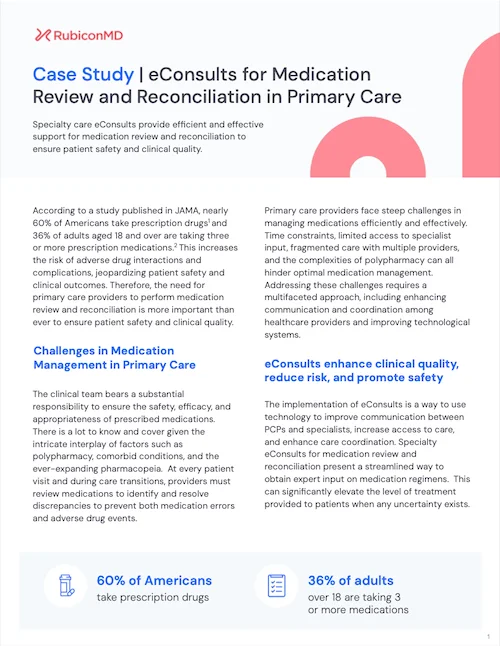eConsult Transcript
PCP submission
Patient is a 76 year old male with Cartoid artery disease history of intracraial hemorrage, afib, cad, CHF with AICD placed in 2007, CKD stage IIIA, and GERD. Patient is a former smoker and is oxygen dependent. Patient in February 2021 was seen of office after hospital evaluation for fall and traumatic intracial heorrhge with periorbital hemorrage invovolving the left sylvian fissure posterior. Patient was seen at home and evaluated . Patient has in past had altered mental status, anorexia and poor po intake. He has an echo with EF of 22 % with grade III diastolic dysfunction. Patient has Chest xray with chronic interstitial opacities. Patient has been admitted to the hospital over 4 times since October 20202. Once for Tia, another for Pneumonia.
Patient has mutliple medications which include digoxin, eliquis, carvedilol, Has chronic use of Alprazolam for insomia, takes furosemide and pantroprzole and albuterol and carvediolol, which places patient a risk for drug interactions.
- Due patient’s chronic illness and multiple comorbid conditions which would be safe in terms of medication management for patient and avoiding complications for further risk for falls.
- Cardiology evaluation patient on zetia.
Nutritional status how is that evaluated in this patient and best medication regimen to avoid policy pharmacy.
Do we need to assess activities of daily living in this patient and any psychsocial stressors have an impact on outcomes for this patient?
Patient has multiple conditions what assessments should be first and foremost for this type of patient and to prevent readmission in this patient?
How can we optimally manage a post-hospital discharge visit with this patient to review all aspects of care and have a comprehesive patient-centric view of how to manage barriers and address patient’s concerns to improve compliance? Is it important to indicate functional status in our overall assessment and involvement of caregivers in patient’s care if he has anxiety and or memory impairment? Would we identify this patient as frail?
Specialist response
Thanks for your questions. This is certainly a challenging patient, but it sounds like you are taking a comprehensive approach which is *exactly* what this patient needs. Oftentimes, these types of patients have multiple specialists all of whom are managing the patient’s symptoms in a silo which results in polypharmacy, poor communication and poor outcomes for the patient. This patient would absolutely be considered frail. We tend to go with a phenotypic definition by Dr. Fried which looks at five categories: weight loss, weakness, exhaustion/poor endurance, slowness, low physical activity. There are ways to measure all of these and you need three of five to be considered frail. I don’t think we need objective measurements to know that this patient would likely meet 4/5 or potentially 5/5 of these measures.
For this homebound patient, it is really going to require a full team to optimize the patient and to prevent readmissions. Ensuring that he has weekly check-ins to optimize CHF status (ie weekly weights, O2 status, etc) will be critical–this could be through home health nursing or via virtual check-ins. His home situation and functional status are also very important to consider. His functional status has profound impact on his life expectancy as well (At 76 with no ADL dysfunction, life expectancy is 13 years vs 8 years if ADL disabled–it is much less for this patient given his advanced CHF).
What ADLs and iADLs can he do? I saw in the note that advanced care planning was started and I agree that this is very important. If he is ready, he may even be appropriate for hospice. If not ready, consider consulting home palliative care to address his symptoms. His insomnia is likely multifactorial with his CHF, difficulty breathing, and seems to be a more chronic problem for which he is on the alprazolam which is a high risk medication and increases his risk for fall (which he has already had a major one). Given that he seems to be taking this twice a day, is there also a component of anxiety and depression? Consider doing a depression/anxiety assessment with the PHQ-9 and the Geriatric Anxiety Scale. The patient may benefit from an SSRI like citalopram with slow weaning of the alprazolam. Other than the alprazolam, the rest of his medications are appropriate for his respective medical issues and I would not make any other changes. I would also assess his cognition.
Given his carotid artery disease/TIA, he is high risk for vascular dementia. A MMSE or MoCA will assess his cognition and may shed more light on his compliance (ie difficulty with remembering to take meds). Ensuring he has a pill box, reminders, and a strong support network with caregivers will be important. As far as his nutritional status, albumin and pre-albumin can be a helpful indicator but given his poor po intake, he may have to liberalize his diet and eat more high calorie foods (though ideally low in salt to prevent CHF exacerbations).
I’ve attached a couple documents: one is a comprehensive geriatric assessment and the other is a house call checklist from the AFP which will help give you an idea of how to make a thorough assessment when you are at the patient’s home (ie doing a fridge biopsy, a safety review to reduce falls at home, etc). I’m happy to answer any specific questions you have. Thank you for the consult!
